Saskia Hamilton (1967–2023) was an important poet whose future poems were sadly taken from us before they could be formed .She taught at Barnard College since 2002 (and Kenyon College before that) and died this week of stomach cancer. She was a highly skilled lyric poet as well as an expert on Robert Lowell, Elizabeth Bishop, and Elizabeth Hardwick.
Hamilton’s poems are compressed, chiseled, and reduced to a core lyric expression. Spare, yet dense, her poems live in a state of longing. What is desire? It can be erotic, memorial, salvational, and fragmented. Sometimes we can evoke it, and sometimes we fall under its sway.
In “The Weight of the Inside of the Body,” the emotion of feeling in between, transitory, or over a threshold becomes a physical state: neither outside nor inside, a lamp that’s off and a “draft,” both wind and a preliminary version.
“The Kiss” uses stretched-out lines and a little hinge (“stone floor, / but”) and the other definition of kiss, “a slight touch,” to amplify intensity and change. The kiss is all the more thrilling for its implication in a domestic setting.
The indescribable mystery of “One Wiser Says to the Other Unwiser,” implies burdens or stressors (e.g. “to shoulder”). The imperative form and word “if” suggests a kind of inherited grief that can have a physical manifestation.
“Another Stupid Party” evokes the delight of noticing a person (an other) from across a room. This is like a feminine version of John Berryman’s “Dream Song 4,” and it ends with the anticipation of desire, a feeling sprung into action.
The bilateral nature of desire is perfectly reflected in this couplet. The lines, like the individuals, are separated. The poem is a situation for which there is no language: the feeling of wanting someone 10% different than they are, or than you are, and all that that entails.
Snow is implicit in “Consider,” and “narrow” is not an adjective, but a noun. The trees become greater than they are, glazed, like ice, with metaphor.
“Listen” begins with a blank space, the first half of the first line. The blank space is visual but also the absence of sound. “Rose” is not the predictable noun, but a verb. The poem is sad and precise in its pushing into the lack of people.
“The First Evening” distills much about a romantic encounter or relationship even as it withholds details and certain clarity. There is no narrative, but there is a residue of the psychodynamic as it is channeled into sexual and erotic experience.
The terrifyingly accurate “Sorrow in the Body” emphasizes the mechanical decay that sorrow inculcates on a physical level.
“She Did Not Want to Hear Me Finish a Sentence” is peak Hamilton. The logic is more clustered than it is linear, and the poem suggests the weird ratio of relief and loss when parents get older and die.
Besides her wonderful poems, Hamilton edited the letters between Robert Lowell and Elizabeth Bishop as well as a second book of letters from Lowell surrounding his controversial book The Dolphin. Her newest book, All Souls, will be published posthumously in October.
For further reading:
Hamilton, Saskia. All Souls: Poems. Minneapolis: Graywolf Press, 2023. [Buy at Bookshop]
—. Corridor: Poems. Minneapolis: Graywolf Press, 2014. [Buy at Bookshop]
—. Divide These: Poems. Minneapolis: Graywolf Press, 2005. [Buy at Bookshop]
—. As for Dream: Poems. Minneapolis: Graywolf Press, 2001. [out of print]
About Sean Singer




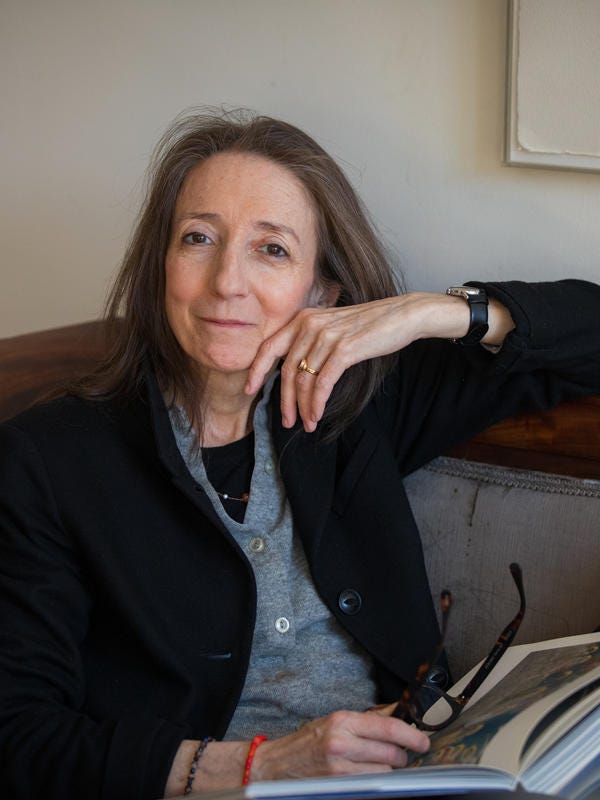
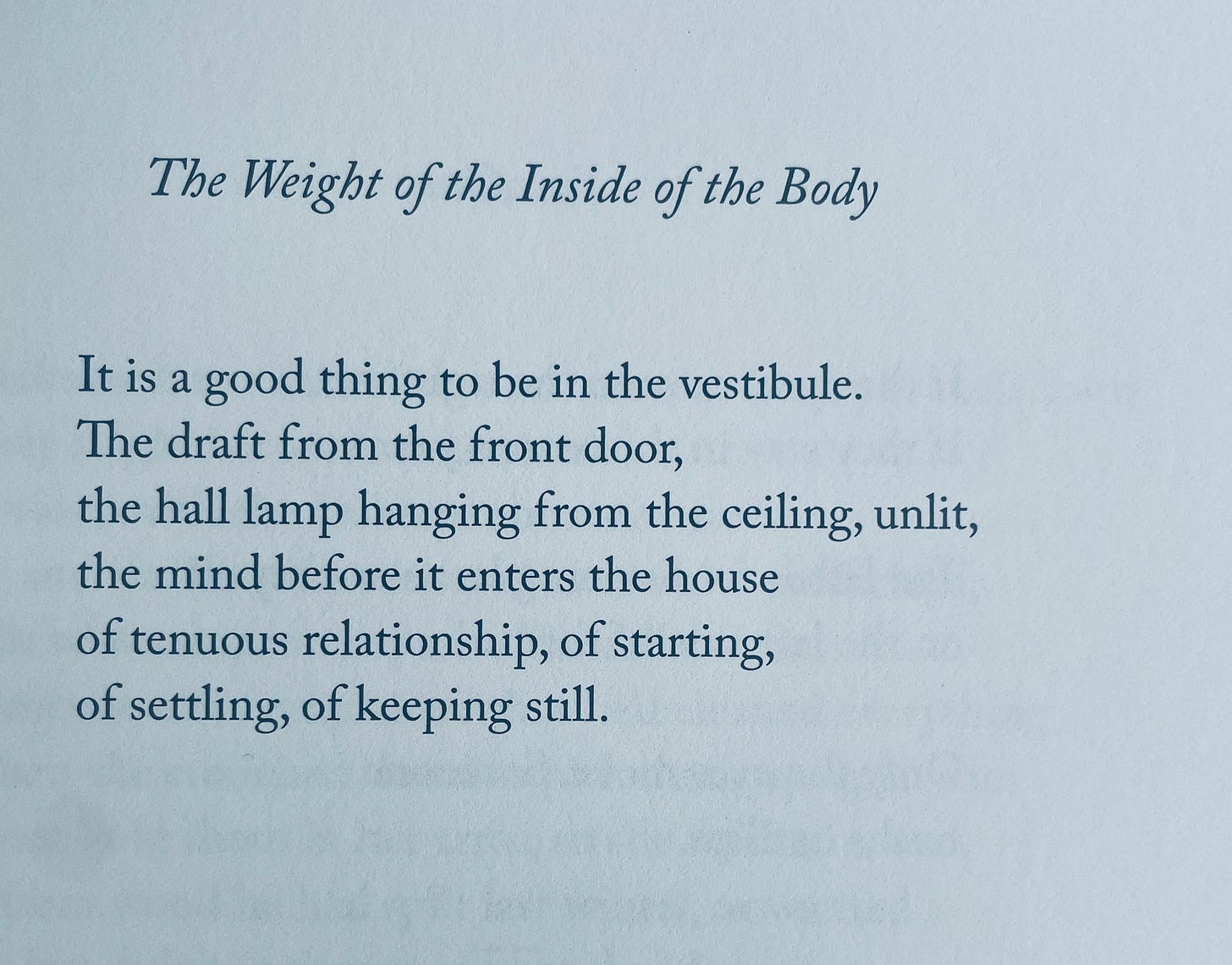
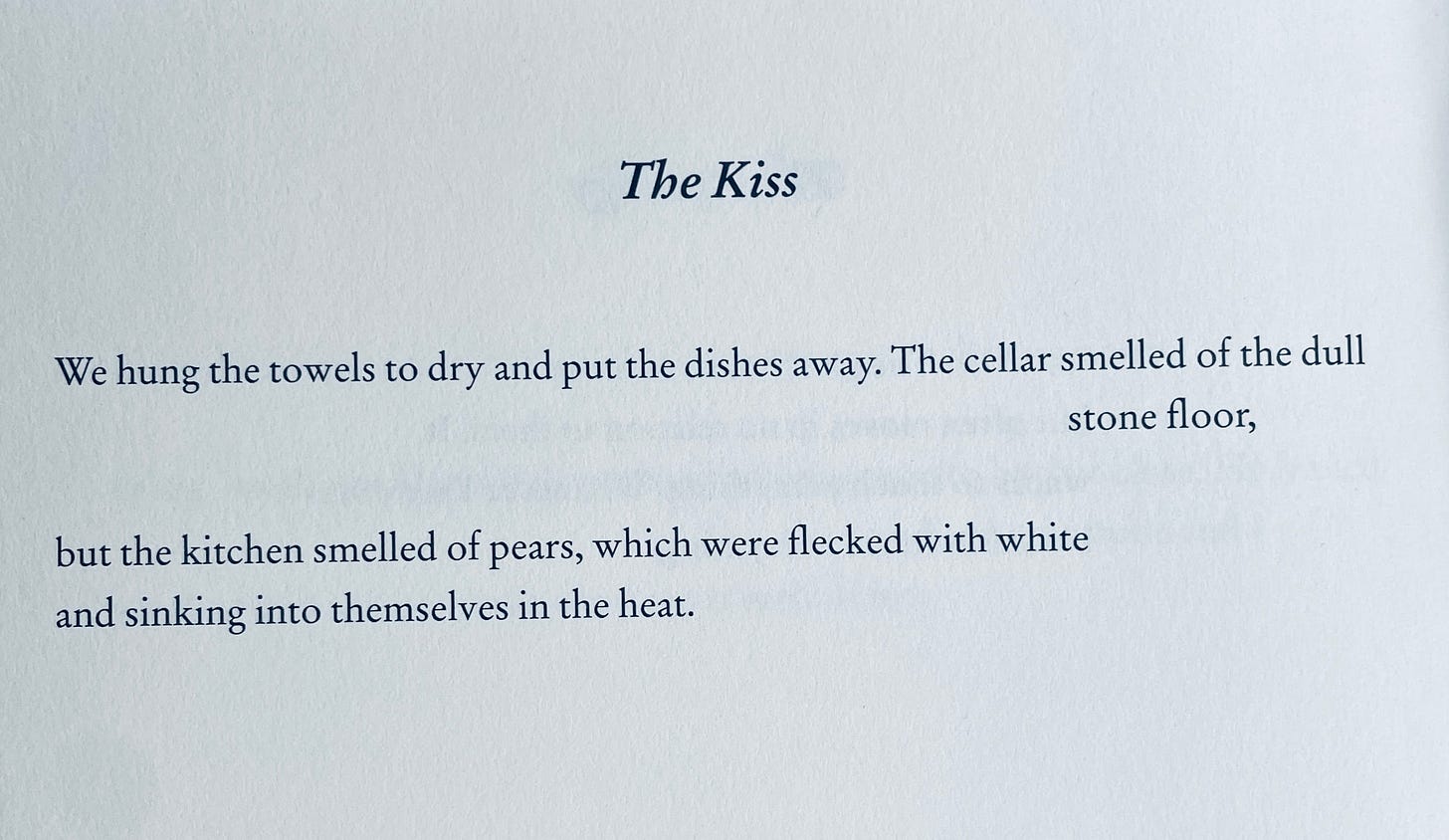
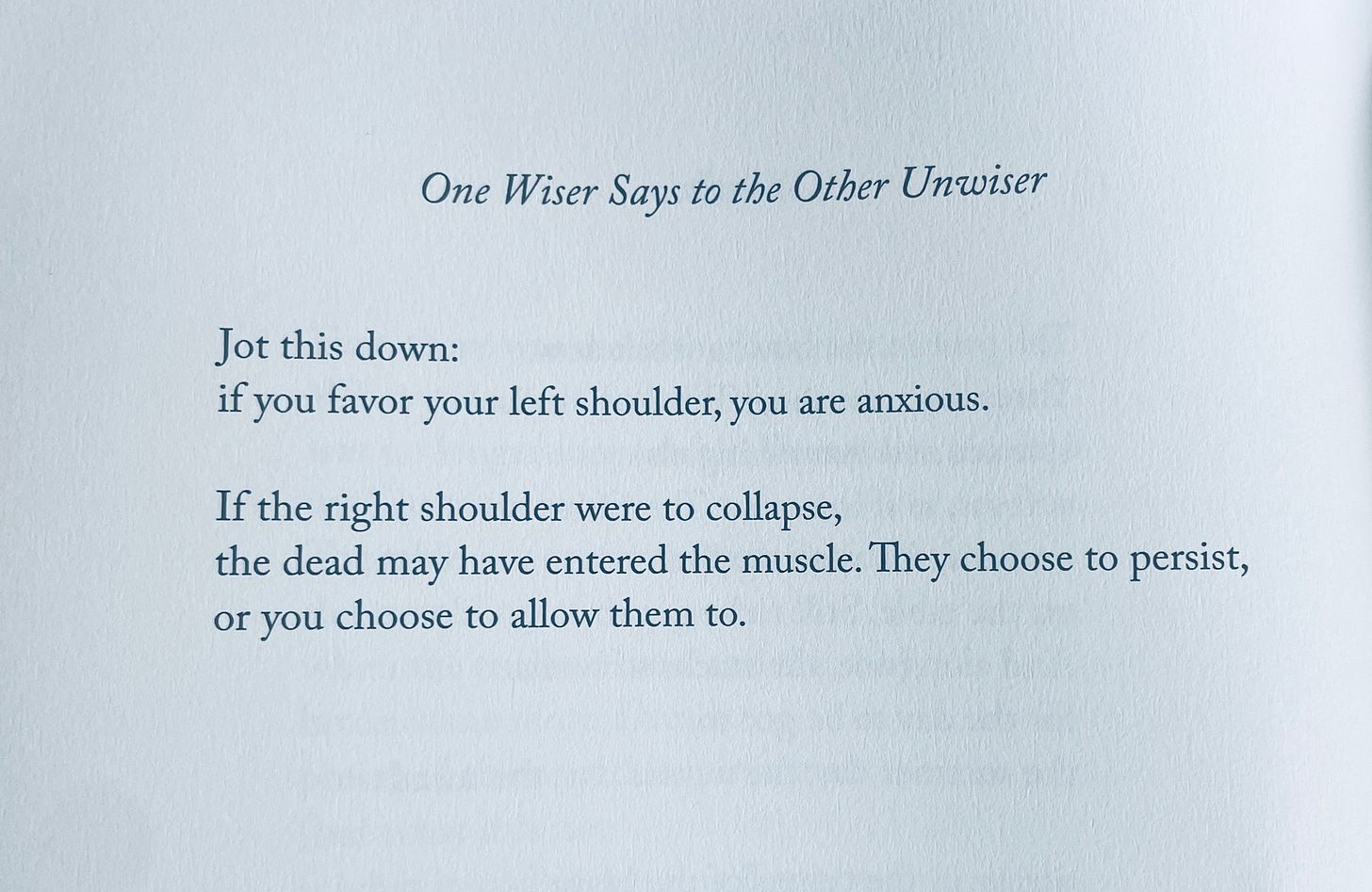
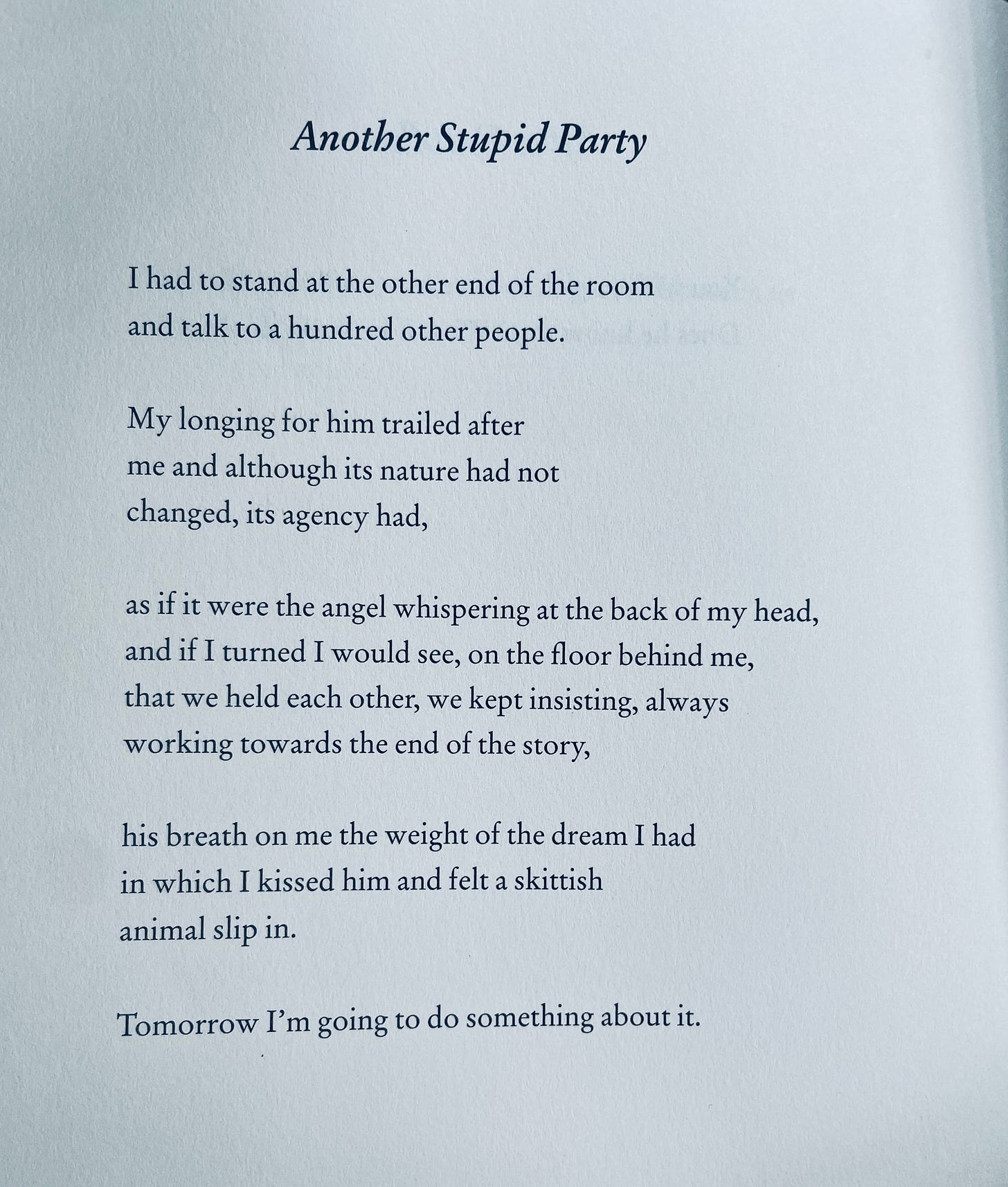
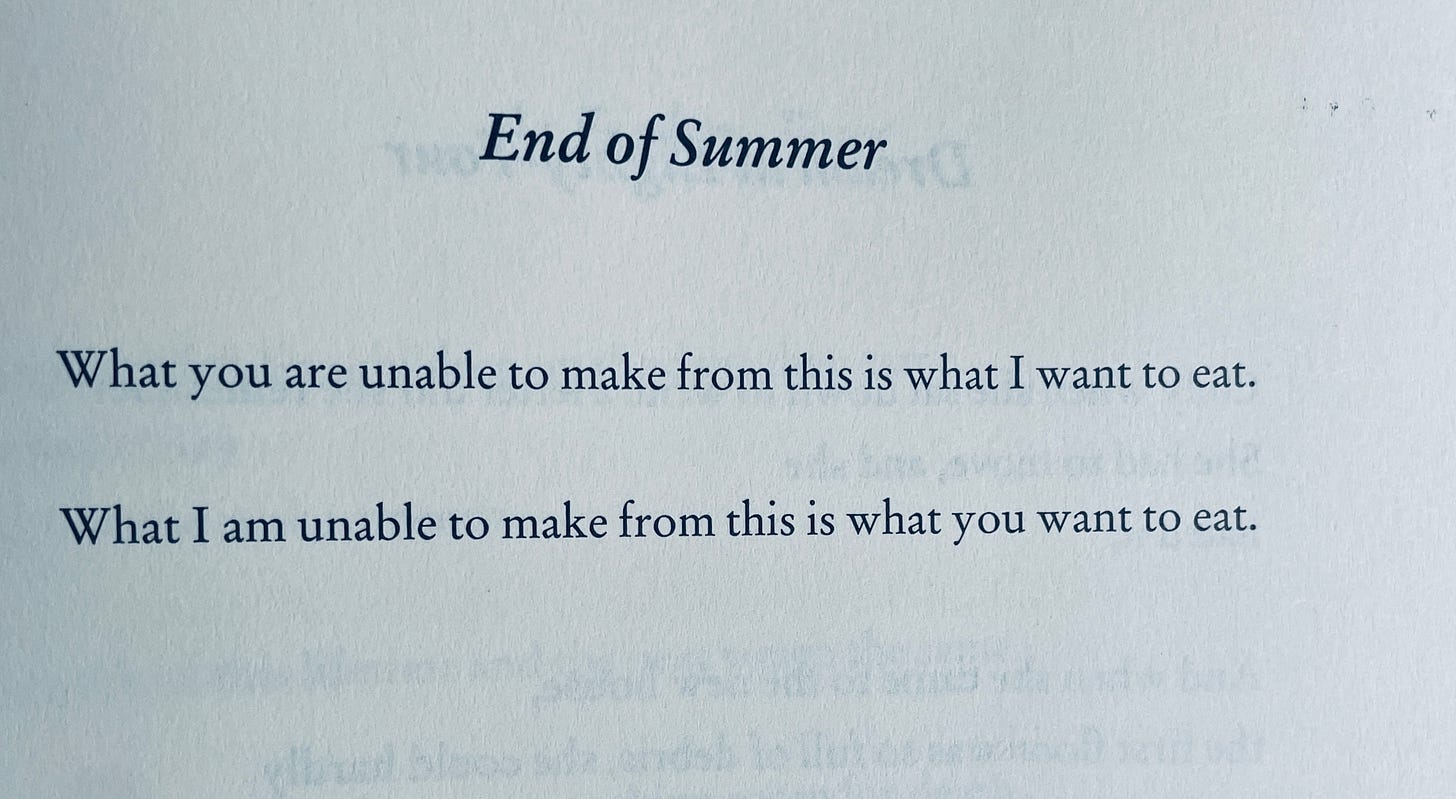

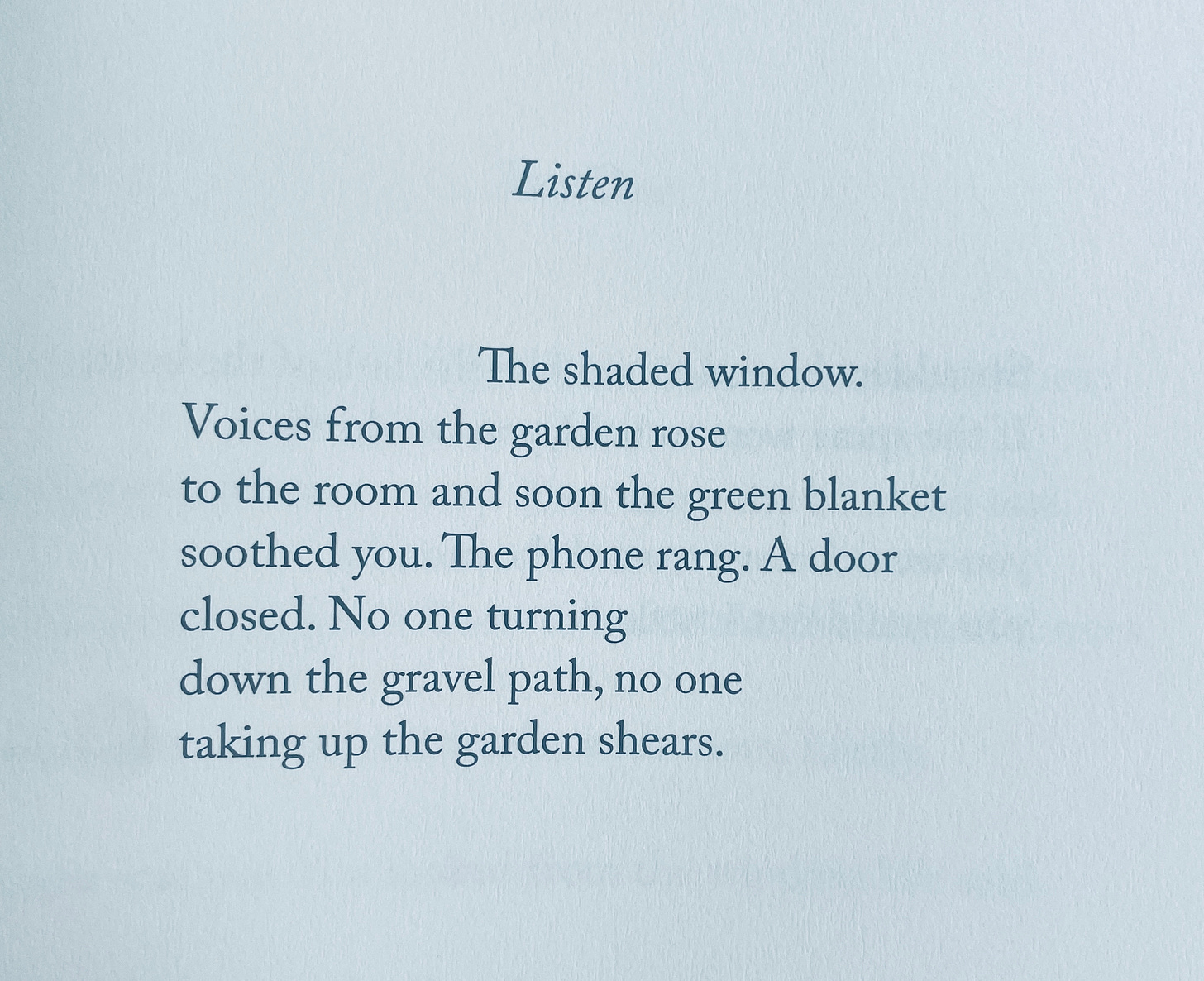
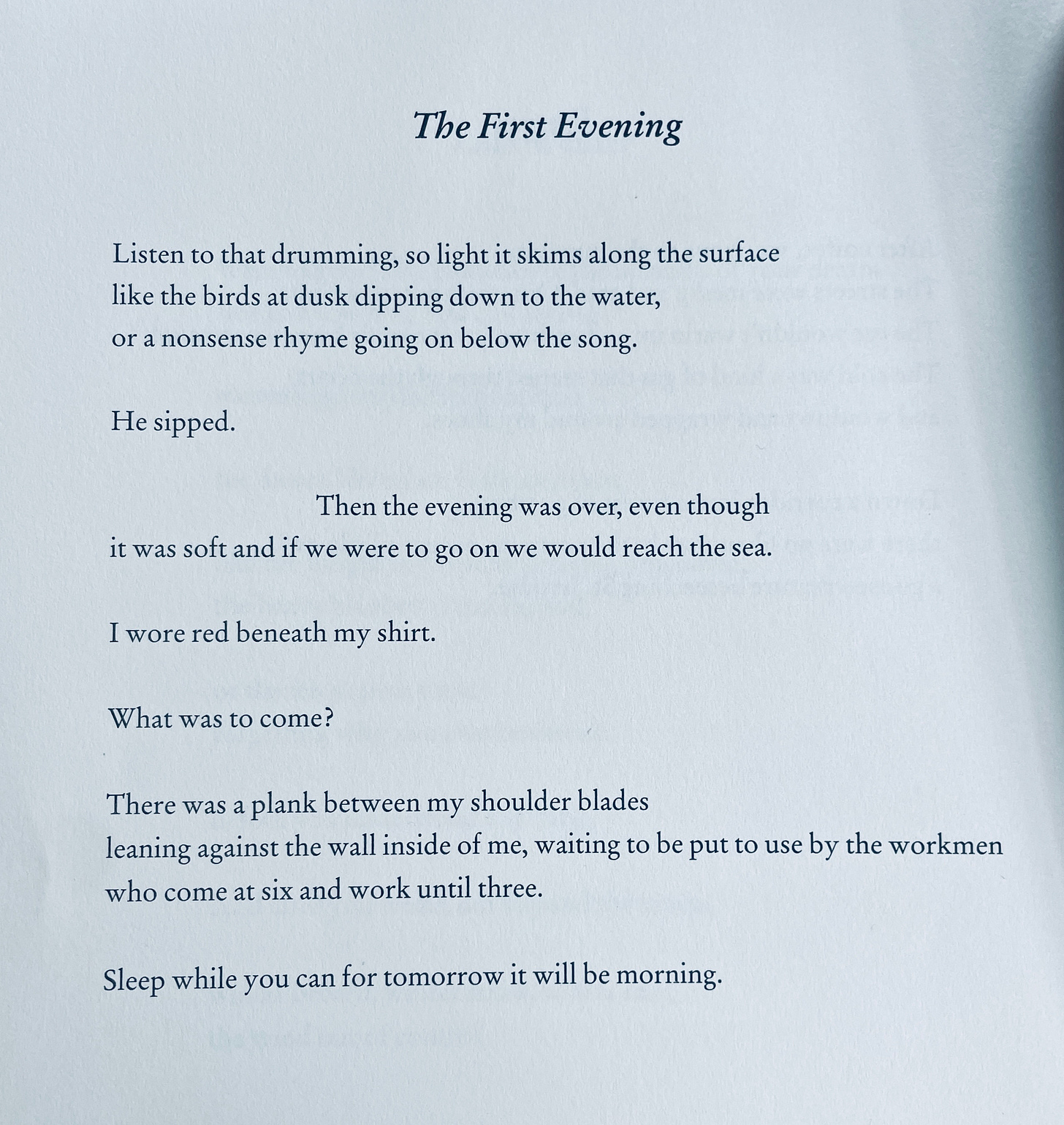

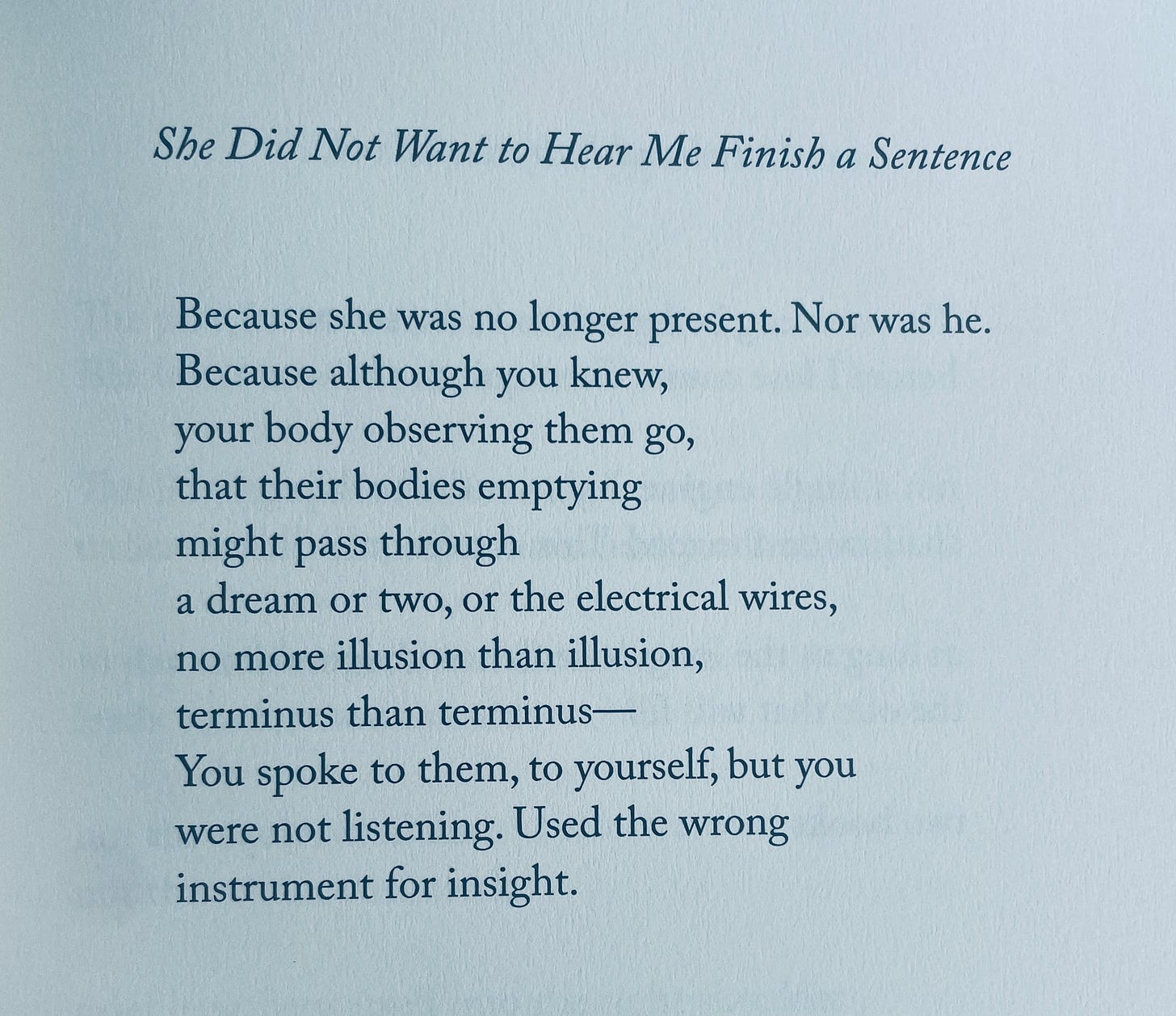
especially wonderful sections of Hamilton's poems. I'm going to buy her book right now. Thanks!
Thank you